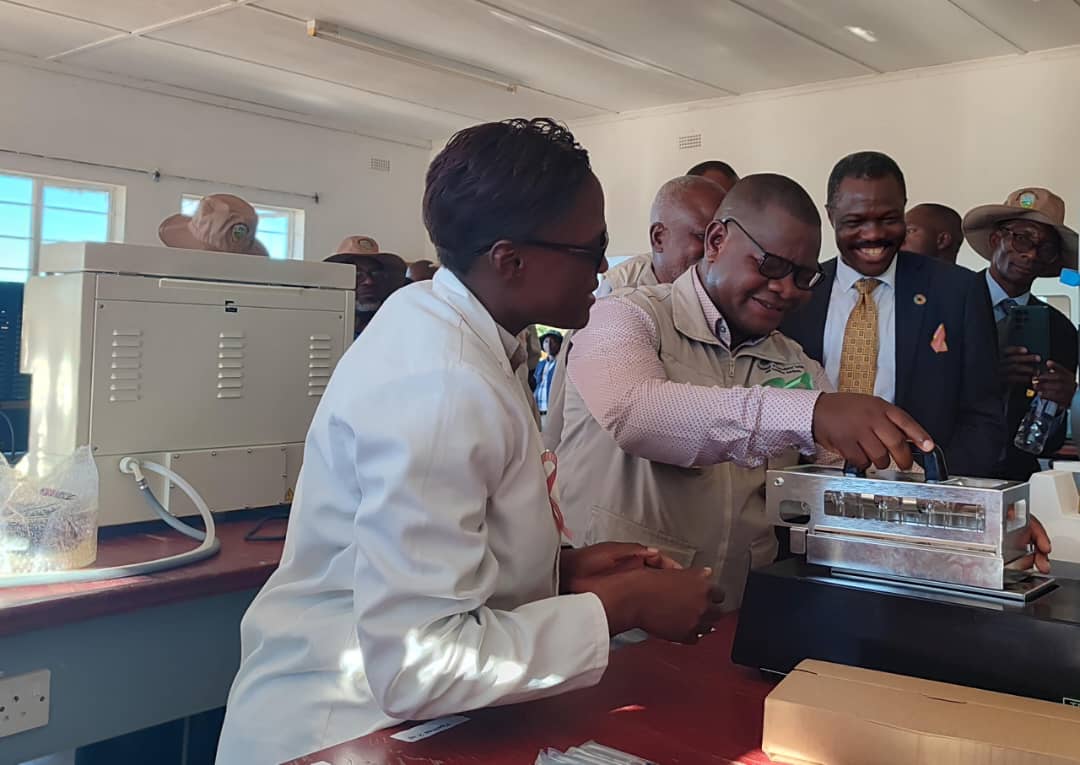By Ndumiso Tshuma
The United Nations Development Programme (UNDP) in Zimbabwe handed over 54 Matabele and Kalahari breeding goats to Esigodini Agricultural College.
The handover included feed analysis and laboratory equipment, all worth over US$80 000.
Speaking at the handover ceremony held at one of Matabeleland South’s premier practical agricultural training and extension services institutions, the guest of honour and Permanent Secretary in the Ministry of Lands, Agriculture, Fisheries, Water and Rural Development, Professor Obert Jiri said that the partnership between UNDP Zimbabwe and Government of Zimbabwe will enhance the institution’s educational programmes, extension, and business advisory services.
“The integration of these resources into our educational programmes will enrich the learning experience of our students,” said Professor Obert Jiri. “Through hands on-training and practical exposure to livestock management and agricultural practices, our students will develop the skills and knowledge necessary to excel in the field.”
Speaking at the same event, UNDP Zimbabwe Resident Representative, lauded the partnership between the United Nations foremost development agency and the government in advancing prosperity, sustainable livelihoods and tackling climate shocks.
“This partnership is aimed at advancing the national climate resilience building agenda where Zimbabwe, like most parts of sub-Saharan Africa, is perennially affected by climatic hazards impacting heavily on smallholder rain-fed agricultural production systems, often with severe extending consequences on socio-economic development,” said Dr. Ayodele Odusola, Resident Representative, UNDP Zimbabwe.
The handover of the goats and laboratory equipment is set to enhance the growth of the institution, promote innovation, and empower students and communities.
“The acquisition of these dairy animals and goats, coupled with the provision of reliable water sources through the boreholes, marks a pivotal moment for our institutions, department, and ministry as a whole. These resources are not mere assets, they represent opportunities for growth, innovation, and empowerment,” further added Professor Jiri.
UNDP Zimbabwe is implementing several projects that are aimed at building climate resilience and supporting sustainable agricultural livelihoods.
“In Zimbabwe, the UNDP, through the Zimbabwe Resilience Building Fund (ZRBF), Climate Adaptation, Water and Energy Programme (CAWEP) and the Green Climate Fund (GCF) funded “Building Climate Resilience of Vulnerable Agricultural Livelihoods in Southern Zimbabwe,” programmes has over the years supported crop and livestock breed improvements, farmer field schools, climate-smart agriculture, revitalisation and establishment of new irrigation schemes and in the process benefitting over 840 000 smallholder farmers,” said Dr Odusola.
One of the project beneficiaries, speaking at the event said that the project is assisting local communities to enhance their goat breeds, which leads to better incomes and growth of their herds which ultimately leads to sustainable livelihoods.

